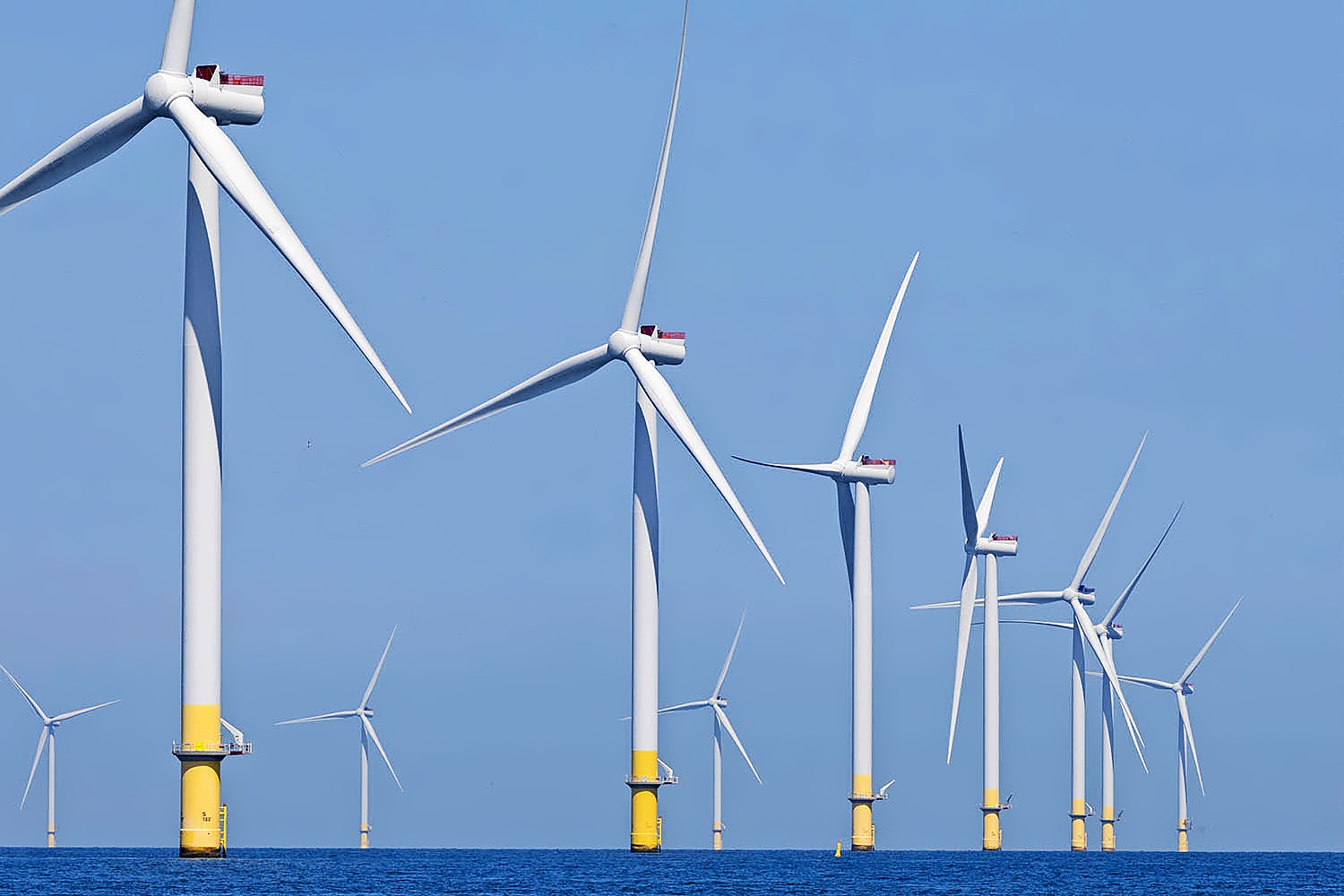The choppy waters of the North Sea were never for the faint of heart. Last week came with warnings that taming its riches comes at a cost.
First, Ørsted, the Danish energy company, has “discontinued” a large offshore wind project off the coast of East Yorkshire, citing “adverse macroeconomic developments”. Second, the oil producer Harbour Energy just axed 250 onshore jobs in Aberdeen.
“It’s not happy times across the UK energy sector,” said Fergus Mutch, a managing director at True North Advisors. The pulling of Ørsted’s Hornsea 4 windfarm, the second largest in the UK, has blown a 2.4 gigawatt-sized hole – enough to power 1m homes a day with a strong breeze – in the UK government’s pledge to ramp up renewable capacity to 50GW by 2030.
Macroeconomics is a culprit. Supply chains are inflated, especially the cost of steel, aluminium, copper and all the other components that go into cables and transformers. The cost of debt remains high and Ørsted said it is facing higher “execution risk” – the uncertainty that comes from generating cash by selling down stakes that can be recycled into new projects.
All that said, some of Ørsted’s seasickness is its own fault. Four years ago, the company was being celebrated as the first big oil business to stomach the transition to clean energy, a feat that gave birth to the phrase among energy geeks, “doing a Dong” – the name of the company before its green rebrand.
‘If we don’t have a successful auction round, then I think it really will end up being more of a contagion’
‘If we don’t have a successful auction round, then I think it really will end up being more of a contagion’
Then, last year, it hit a squall. The company took a $1.7bn write-down on two key wind projects off the US east coast. It cost Ørsted a chief executive and left the business fighting off junk-bond status. The new chief executive has decided it is time to pull hard on the purse strings.
The scuppering of Hornsea 4 is troubling for Ed Miliband’s clean energy mission. By securing a contract to build the project last year, Ørsted set what is known as the “strike price”, a guaranteed megawatt-hour price for low-carbon generators that is set through an auction.
That means it squeezed out other projects that might have materialised at a slightly higher price.
All eyes are now on the next round of contracts to be awarded by the government this summer. “It’s a proper blow,” said a well-placed government source. “If we don't have a successful auction round, then I think it really will end up being more of a contagion.”
There are at least some tools at Miliband’s disposal. It is understood that in the next two weeks the government will bring forward plans to offer longer contracts, the logic being that if you offer 25 years instead of 15, you get a lower strike price for longer.
Newsletters
Choose the newsletters you want to receive
View more
For information about how The Observer protects your data, read our Privacy Policy
The auction may also be opened up to projects that have not yet achieved full planning sign-offs.
There is some hope that Hornsea 4 will still go ahead at a later date. “You don’t want to do anything that is an incentive for other firms to cancel and negotiate,” said Sam Alvis of the Institute for Public Policy Research.
He added: “Hornsea 4 now has to spend two years in the sin bin but procuring it in a later round is the sensible decision.”
But then there is the troubling matter – at least politically – of what can be done for laid-off rig workers. “There’s a misunderstanding around the industry that they can just walk into green jobs – but there’s simply not the opportunities,” said Mutch.
Energy leaders in Aberdeen held an emergency meeting last week and are calling for Keir Starmer to visit the city.
Photograph by AFP

